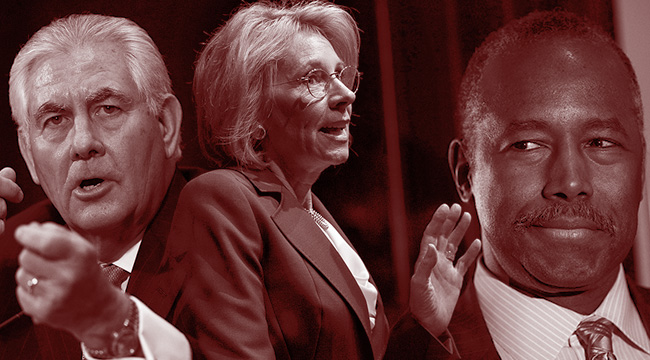
To help construct and implement President Donald Trump’s plan for America, he’ll need a lot of help from his cabinet. But is this collection of well-off business vets (and the occasional public official) ready for the awesome responsibility that lies ahead? Over these next few weeks, we’ll watch as Senators push cabinet designates on their track records and we’ll keep tabs on which tough questions are being asked and what the prospects are for confirmation with this frequently updated scorecard.
Secretary of Defense: Gen. James “Mad Dog” Mattis
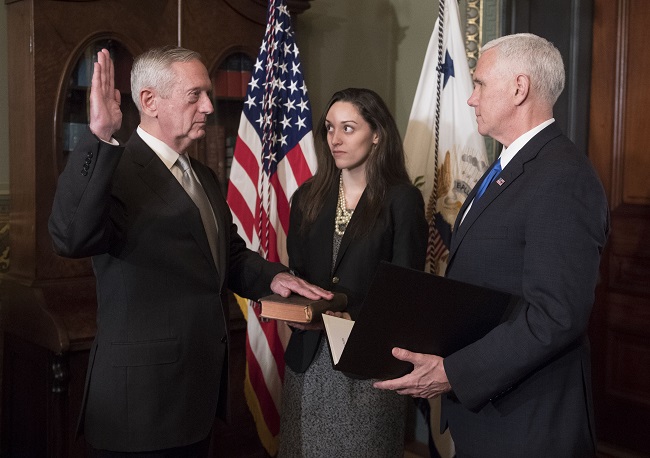
Recap: Advances in the military’s attitudes toward gay, lesbian, and transgendered personnel and the role of women in combat were supported, cyber warfare was regarded as a serious threat, and Russia was deemed a “strategic competitor,” indicating a suspicious view of the meddling military superpower from the retired four-star general.
Status: Mattis was confirmed near unanimously on January 20.
Secretary of Homeland Security: Gen. John Kelly
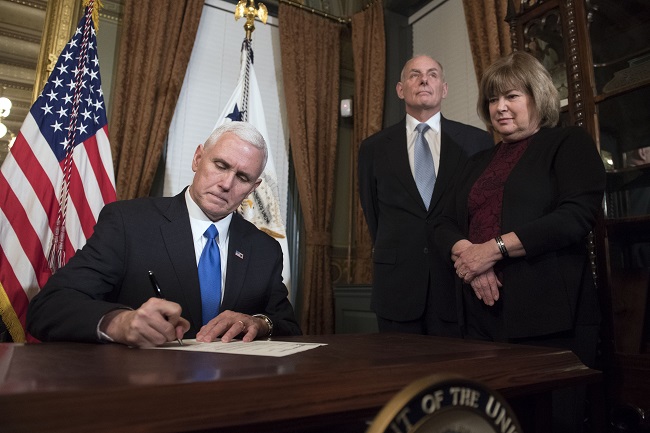
Recap: Another retired four-star general, Kelly said he believed “a physical barrier in and of itself will not do the job” in relation to the U.S.-Mexico border wall and spoke out against the idea of a Muslim registry and the mass collection of data from U.S. citizens.
Status: Kelly was confirmed on January 20.
CIA Director: Mike Pompeo
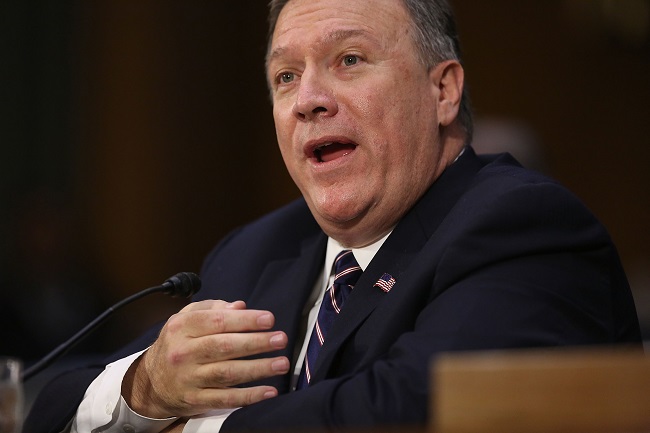
Recap: The big headline from Pompeo’s hearing came when the now incoming chief of the CIA confirmed the intelligence community’s findings on Russia’s role in the hacks that were aimed at impacting the 2016 election. Still, Pompeo didn’t exactly sail through his confirmation, encountering vocal opposition due to his stance on torture (though, he refined his position and seemed more dismissive of waterboarding in his hearing).
Status: Despite objections, Pompeo was confirmed on January 23 with minor Democratic support and one dissenting vote from the right by Sen. Rand Paul (R-Kentucky).
Secretary of State: Rex Tillerson
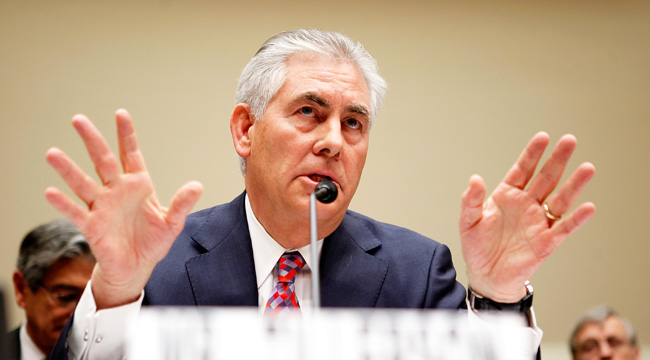
Recap: Former Exxon Mobil executive Rex Tillerson’s exchange with Sen. Marco Rubio made headlines as Tillerson’s ties to Russia were aggressively probed, and he was asked whether or not he would describe Russian President Vladimir Putin as a war criminal. He said, he “would not use that term” but also spoke favorably about Russian sanctions and, at least partially, stood apart from President Trump on select matters pertaining to Syria, nuclear proliferation, and global warming. Concerns about his past with Exxon Mobil lingered, though.
Status: Tillerson was confirmed 56 to 43, making the Senate’s vote one of the most conentious in the history of the position.
Attorney General: Sen. Jeff Sessions
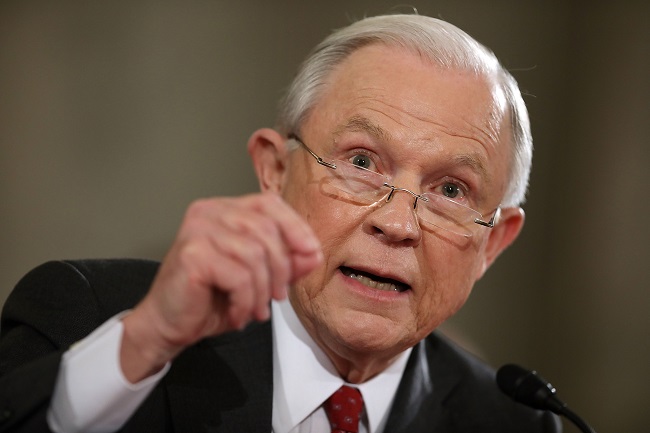
Recap: Alabama Sen. Jeff Sessions’ two-day hearing featured countless protests, notable instances of Sessions’ disagreeing with President Trump (most notably on torture), and testimony referring to the Attorney General nominee’s alleged racism. Even Sen. Corey Booker (D-New Jersey) broke precedent to testify against his colleague.
Status: Despite vocal criticism from Democrats, Sessions was confirmed mostly along party lines with Sen. Joe Manchin (D-West Virginia) standing as the only Democrat to support his selection as Attorney General.
Secretary of the Treasury: Steven Mnuchin
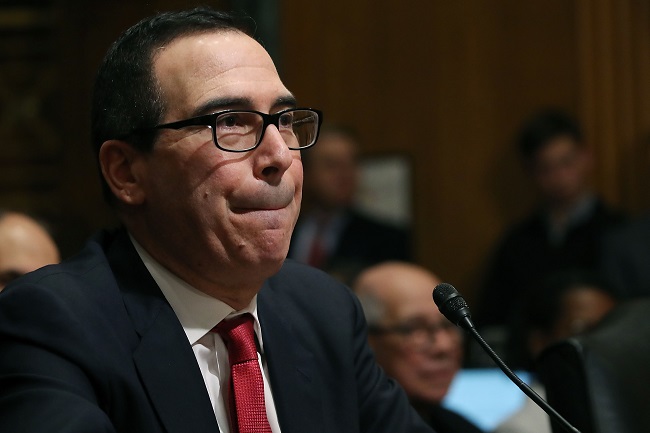
Recap: Democrats took Mnuchin to task for his time heading OneWest, which was dubbed a “foreclosure machine,” but the former Trump campaign finance chair defended his record and pushed back against what he called “unwise and burdensome” financial regulations that made it harder for OneWest to modify mortgages. Mnuchin also had to answer for a freshly revealed (by him) job in the Cayman Islands and his failure to initially disclose $95 million in real estate holdings while trying to talk up the Trump administration’s proposed corporate tax cuts and targeted tariffs.
Status: The Senate confirmed Mnuchin 53 to 47 in a vote that generally stuck to party lines.
Secretary of Energy: Former Gov. Rick Perry
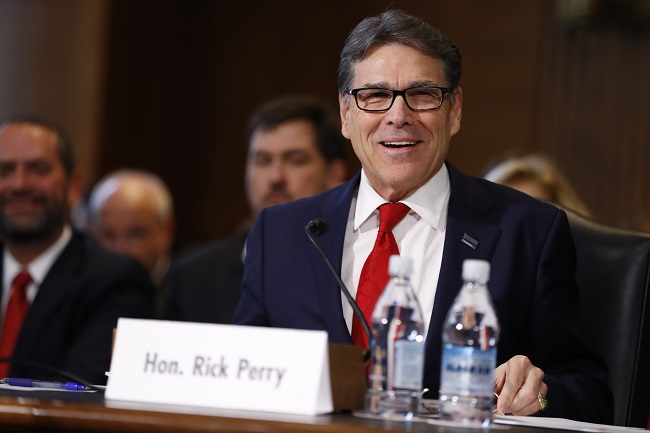
Recap: Rick Perry’s nomination drew plenty of criticism, but the former Texas governor gained favor with those on the left by saying he regretted calling for the Department of Energy’s closure and acknowledging the reality of man-made climate change. His insistence on using department research and technologies to turn a profit for the federal government raised some concerns, though.
Status: With a vote of 62 to 37 and the support of 10 Democrats, the Senate confirmed Perry on Thursday, March 2nd.
Secretary of Education, Betsy DeVos
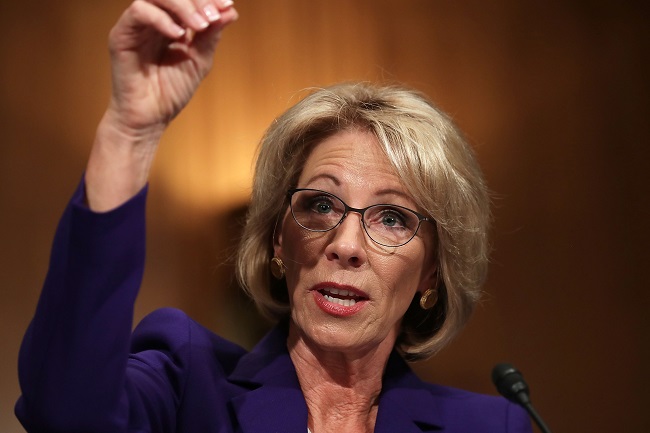
Recap: DeVos, a businesswoman turned education activist, cited grizzly bears as a reason why some schools might allow guns on the premises and rankled Sen. Elizabeth Warren (who delighted in highlighting her inexperience with the student loan system) to such an extent that Warren apparently refused to shake hands after the hearing. DeVos also allegedly plagiarized her answers for the committee’s questionnaire.
DeVos also tussled with Sen. Al Franken (D-Minnesota) on proficiency vs. growth and was questioned on her views regarding federal and state education laws and her advocacy for charter schools over public education.
Status: Despite failing to get support from certain Republican senators and inspiring a filibuster by Democrats, DeVos was confirmed on Tuesday, February 7 by a slim vote of 51 to 50 with Vice President Mike Pence fulfilling his responsibilities as President of the Senate to cast the tie-breaking vote.
Secretary of Commerce: Wilbur Ross
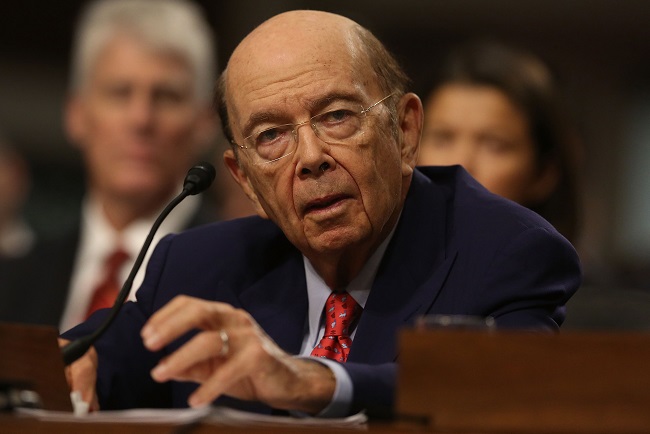
Recap: Both sides had concerns with Ross’ appointment due to his support for Trump’s tariff policy proposals, but Ross insisted he didn’t want to start a trade war with China and instead emphasized the “imbalance” between their trade policies and those here in the U.S. during his hearing.
Status: The Senate confirmed Ross as Trump’s commerce secretary with a 72 to 27 vote late Monday evening. Minority Leader Chuck Schumer protested the White House’s refusal to release some of Ross’ written answers to the Senate’s questionnaire, but his comments were brief.
Secretary of the Interior: Rep. Ryan Zinke
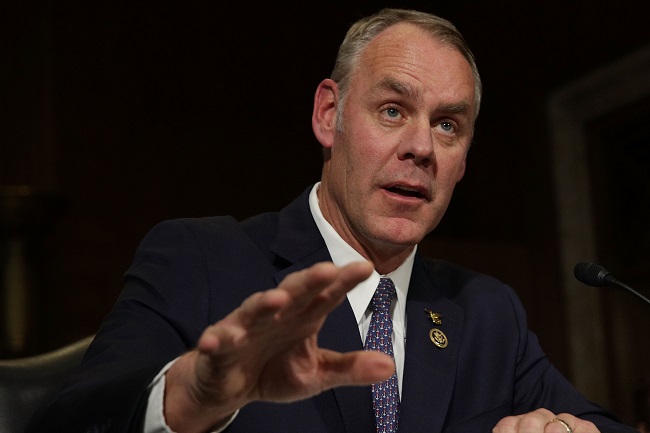
Recap: Zinke was questioned on climate change and sexual harassment in the National Park Service and tried to reassure Democratic legislators by saying “man has had an influence” with respect to climate change and that he takes “issues of sexual assault and harassment absolutely seriously.” Zinke also pushed for Trump’s proposed infrastructure spending in which he plans on including an “estimated $12.5 billion in backlog of maintenance and repair” at national parks.
Status: Zinke was confirmed by the Senate on Wednesday, March 1st. The final vote tally was 68 to 31.
Secretary of Transportation: Elaine Chao
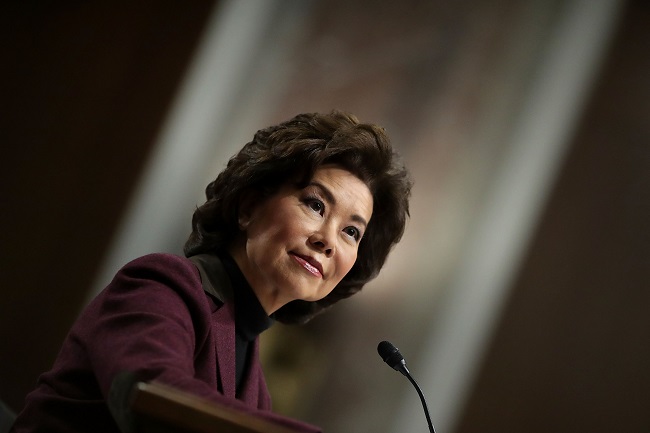
Recap: In contrast to others on this list, Chao enjoyed a relatively painless process, fielding praise from Senators on both sides of the aisle. On policy, Chao made it clear that Trump’s promised $1 trillion dollar infrastructure proposal will require a team effort with bipartisan cooperation and a mixture of federal spending and public-private monies.
Status: Chao was confirmed on the Senate floor by a steep majority.
Secretary of Health and Human Services: Rep. Tom Price
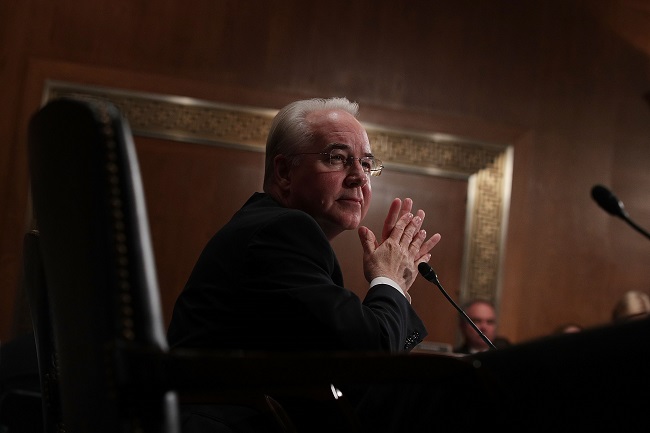
Recap: Unlike Chao’s warm reception, Georgia Rep. Tom Price faced a combative meeting with members of the Finance Committee during his first hearing, and it hasn’t been much kinder during his second session. The key objections stem from the longtime Affordable Care Act critic‘s congressional record on matters pertaining to the repeal of Obamacare and allegations of insider trading in the healthcare space.
Status: Price was confirmed by a vote of 52 to 47.
Secretary of Housing and Urban Development: Ben Carson
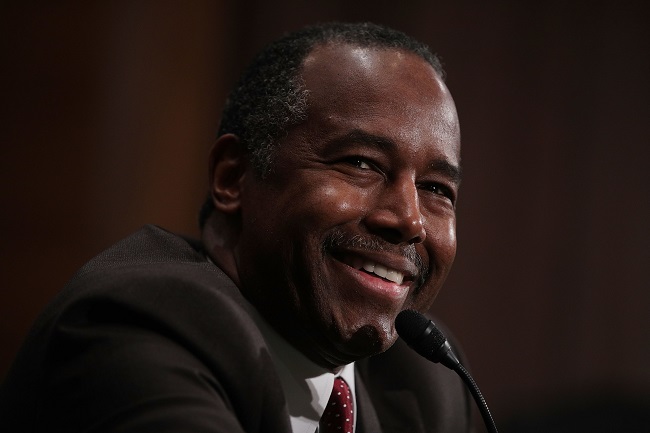
Recap: Former Republican presidential candidate and noted neurosurgeon Ben Carson’s lack of experience on matters pertaining to HUD stoked criticism from Democrats, but his hearing did little to slow his charge toward confirmation and mostly focused on his philosophies on government and assisting the poor.
Status: The Senate voted to confirm Carson 58 to 41 on Thursday, March 2nd.
Environmental Protection Agency Administrator: Scott Pruitt
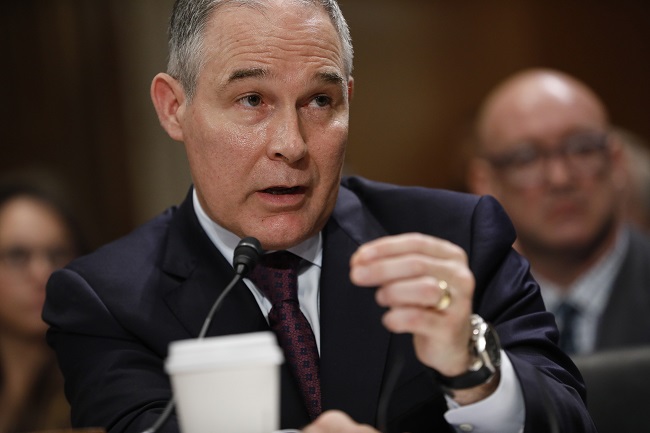
Recap: The Oklahoma Attorney General’s record as a fierce advocate for the fossil fuels industry and an even fiercer critic of the EPA has caught flack from those on the left. In his session, Pruitt acknowledged man-made climate change but also stood firm in his beliefs about regulatory overreach.
Democratic committee members questioned Pruitt’s record and his ties to energy lobbyists, prompting a back and forth on whether he would recuse himself from all matters where he had previously been a plaintiff in his many lawsuits against the EPA during the Obama administration.
Status: Pruitt was confirmed on February 17. GOP Senator Susan Collins (R-Maine) was the lone republican who opposed him in the 52-46 vote. Sen. Joe Manchin (D-West Virgina) and Sen. Heidi Heitkamp (D-Montana) were the only ones on the left to vote in Pruitt’s favor.
United Nations Ambassador: Gov. Nikki Haley
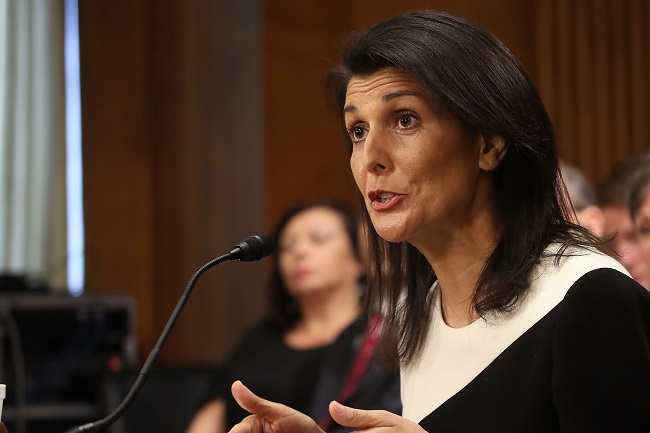
Recap: Haley has sharply criticized the U.N., but Sen. Ben Cardin (D-Maryland) said he was more concerned with Haley’s “lack of foreign policy experience.” Sen. Tim Kaine (D-Virginia) also took issue with Haley’s opposition to the Iran nuclear deal and asked her to “read the agreement.” Despite this pushback, though, Haley sought to broaden the view of what people see as diplomatic experience by touting the parts of her job as governor and how they relate to diplomacy. Haley also rejected the notion of a Muslim registry and attempted to clarify the administration’s stance on it as well.
Status: Haley sailed to an easy confirmation.
Office of Management and Budget Director: Rep. Mick Mulvaney
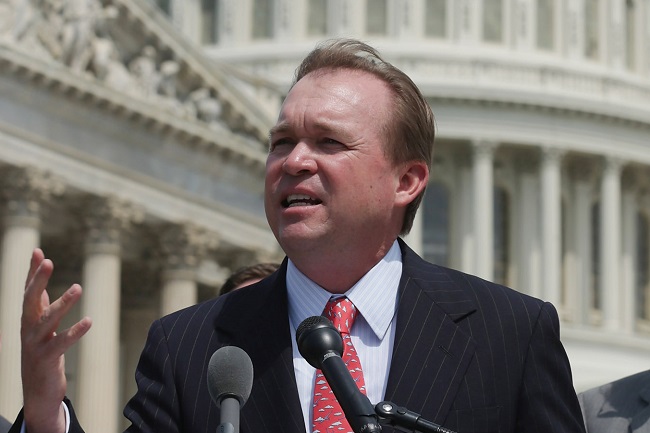
Recap: A budget hawk and vocal critic of medicare who will aid the President in his efforts to rein in the federal budget, Rep. Mick Mulvaney was pushed on his views regarding means testing and a rise in the social security retirement age, specifically with regard to President Trump’s vow to leave Social Security and Medicare alone.
Status: The Senate confirmed Mulvaney 51 to 49 in a vote mostly consistent with party lines, though Sen. John McCain (R-Arizona) opposed the nomination.
Small Business Association Administrator: Linda McMahon
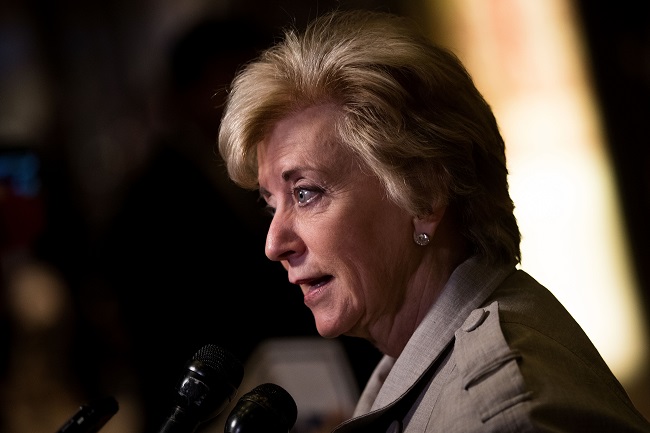
Recap: The former senatorial candidate and WWE CEO’s hearing garnered interest thanks to the sight of her son-in-law, Tripple H, in the audience and the fact that two former political rivals — Sen. Chris Murphy (D-Connecticut) and Sen. Richard Blumenthal (D-Connecticut) — sat by her side and supported her. During the hearing, McMahon offered her thoughts on the effect of regulations on small businesses, but Sen. Tammy Duckworth (D-Illinois) did offer some pushback when she mentioned the WWE’s controversial classification of its performers as independent contractors.
Status: The Senate confirmed McMahon to lead the Small Business Association.
Secretary of Agriculture: Former Gov. Sonny Perdue
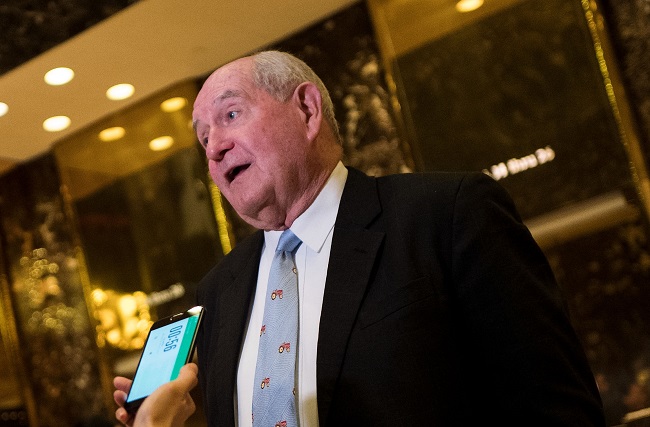
Trump formally announced the nomination of former Georgia Gov. Sonny Perdue for Secretary of Agriculture on the day before the inauguration. During his March 23rd confirmation hearing before the Senate Agriculture, Nutrition and Forestry Committee, Perdue answered questions about Trump’s proposed budget cuts and what they would mean for agriculture. The nominee stressed he had “no input” on the matter, but promised to bolster the department if confirmed. A followup as not yet been scheduled.
Secretary of Labor: Andrew Puzder
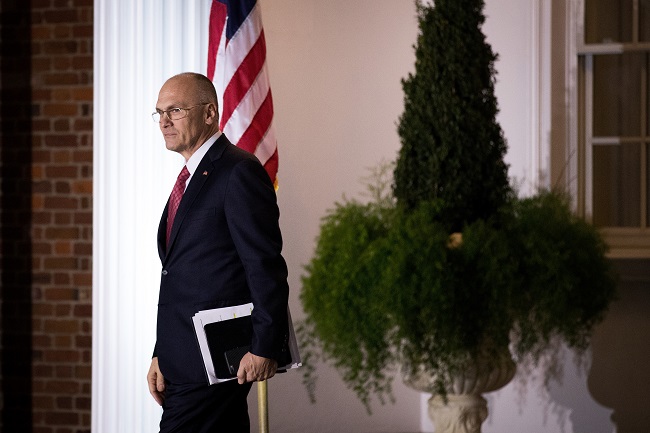
The CKE Restaurants CEO is a fierce critic of raising the minimum wage to $15 an hour and once suggested replacing human laborers with automated systems.
Puzder’s hearing had been scheduled for February 16 after repeatedly being rescheduled, but it was scrapped when he withdrew his nomination after at least four Republican senators — Susan Collins (Maine), Lisa Murkowski (Alaska), Tim Scott (South Carolina), and Johnny Isakson (Georgia) — reportedly told GOP leadership that they would withhold support. Collins and Murkowski notably voted against the ultimately successful confirmation of Education Secretary Betsy DeVos.
Secretary of Labor: Alexander Acosta
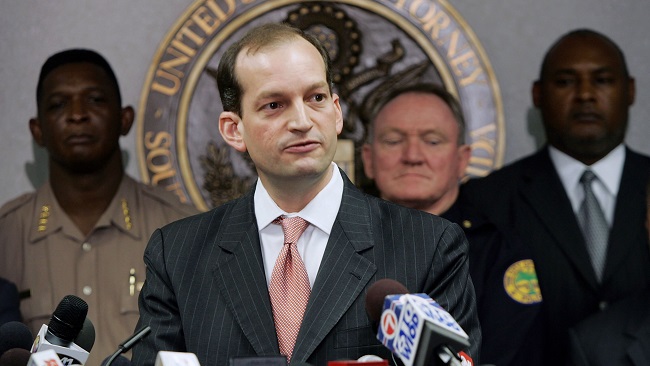
The day after Puzder withdrew his nomination from consideration for labor secretary President Trump announced Alexander Acosta as his new pick. The current dean of Florida International University’s law school and a former member of the National Labor Relations Board (NLRB), the Republican is the first Hispanic cabinet pick announced by the new administration.
On March 22nd, Acosta faced a grilling at the hands of the Senate Health, Education, Labor, and Pensions Committee’s Democratic members. Unlike previous cabinet nominees, many of whom said they would stand up to Trump if necessary, the new labor pick assured the committee he would “[follow] executive orders of the president, who would be my boss.” A followup as not yet been scheduled.
Secretary of Veterans Affairs: David Shulkin
The VA undersecretary for health under President Obama, David Shulkin was unanimously confirmed on February 13 and officially becomes the first major Obama appointee to be kept on by President Trump.
U.S. Trade Representative: Robert Lighthizer
Lighthizer formerly served as Reagan’s deputy U.S. trade representative. The trade representative’s main charge is negotiating international trade deals and disputes, so Lighthizer will play a key role in President Trump’s efforts to redefine U.S. trade policies and rework trade deals.
Throughout his March 14 confirmation hearing, Lighthizer praised the new president and criticized China’s past and allegedly current use of currency manipulation. According to the Los Angeles Times, there was “every indication” Trump’s trade representative nominee would win confirmation when scheduled.
Director of National Intelligence: Former Sen. Dan Coats
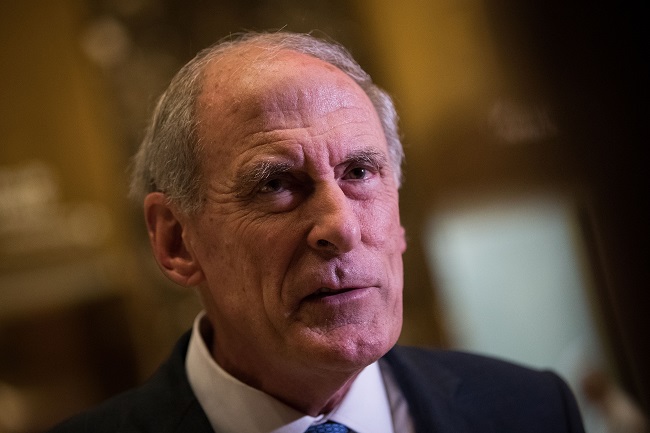
With President Trump’s past clashes with the intelligence community, all eyes will be on the confirmation hearing for the man whose job it will be to coordinate communication between 16 major intelligence agencies. Especially since, according to CNN, the Trump administration may look to shrink the power of the DNI.
Good thing Dan Coats flew through his Senate confirmation on March 15 with a final tally of 85 to 12 votes.
Be sure to check this page for updates on the confirmation process and the construction of Donald Trump’s cabinet.
